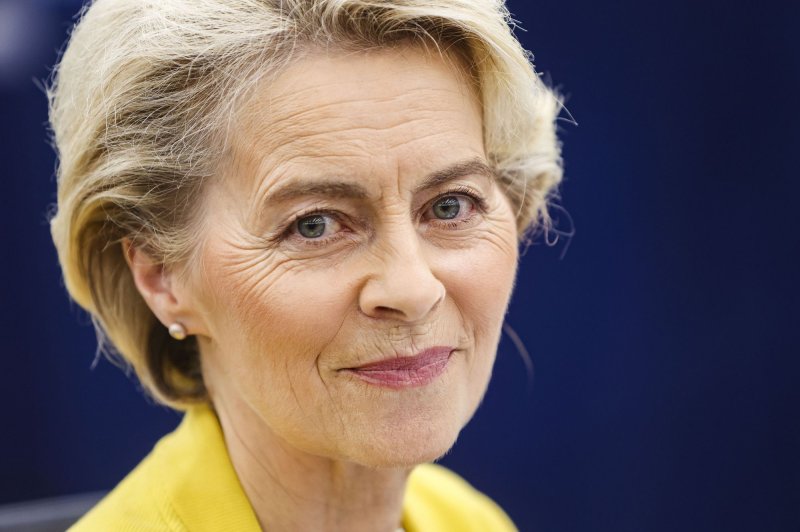European Commission President Ursula von der Leyen said members states have agreed on a roadmap to deal with the bloc's energy crisis. Photo of the European Union/EP/UPI |
License Photo
Oct. 21 (UPI) -- After a series of stumbles due to internal divisions, the head of the European Union said Friday there was a definitive agreement to find a "well-balanced" approach to imposing a limit on the price of natural gas.
Most major economies are facing inflationary headwinds due in no small part to the war in Ukraine. Because Russia is a world leader in producing everything from crude oil to natural gas and grains, the backlash over its February invasion of Ukraine has led to dramatic price increases for those near-essential goods.
Europe in particular is struggling to cope with the economic and supply-side challenges given that it relied heavily on Russia for its imported natural resources before the war. For Germany, Europe's largest economy, those challenges have led to the highest spike in inflation in 70 years.
On Friday, European Commission President Ursula von der Leyen said leaders during a meeting of the European Council discussed ways to limit the impact that the high price of natural gas will have on consumers.
A price cap would be difficult to coordinate among the various EU members. Von der Leyen added there were additional concerns that a de facto subsidy would do little to address consumer-level demand.
"Here too, we will work together with member states and with the council formation to find a well-balanced and common approach on these issues," she said.
The theme of bloc-wide coordination is a breakthrough for European negotiators working to limit the economic fallout from war. Germany in particular had balked at the price cap for natural gas, though Chancellor Olaf Schulz seemed to have conceded to the issue during this week's talks.
"There is a lot to do to make this concrete, but we need to find a concrete way to limit these (spikes in commodity prices)," Scholz said, according to the Bloomberg news agency.
That doesn't mean a price cap is imminent, however. The Dutch government said it wanted to see more details on the pros and cons of the arrangement, while the EU president herself suggested what's on the table thus far represented only a "solid roadmap."
Discussions with the energy ministers from individual member states are scheduled for Tuesday.
Individual member states have already imposed their own relief measures. German lawmakers this week backed a $195 billion subsidy to help cover the cost of energy bills. French President Emmanuel Macron announced last month that his nation will join Germany in supporting a European Union windfall tax on the "excessive" profits posted by energy companies in an effort to rein in soaring gas, coal and oil prices for consumers.















